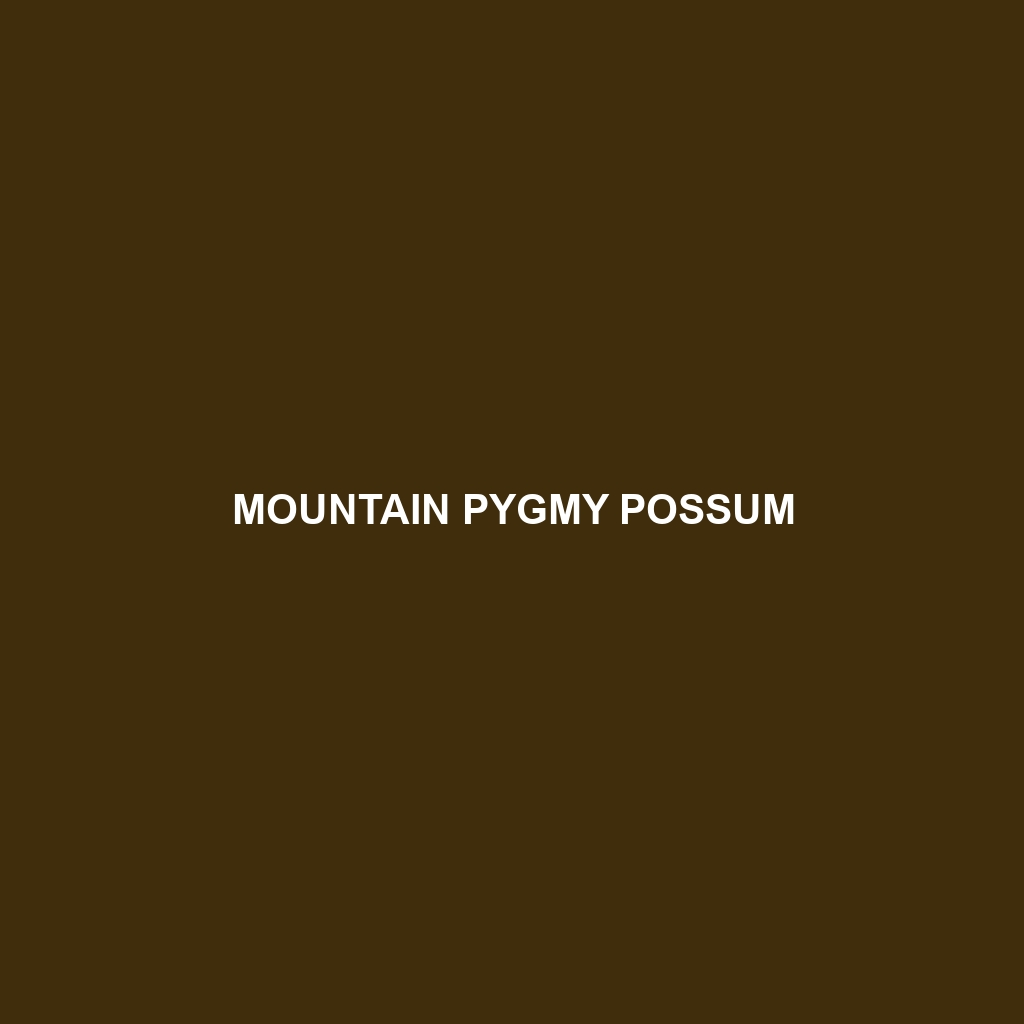Mountain Pygmy Possum (Burramys parvus)
The Mountain Pygmy Possum is a small, nocturnal marsupial native to the alpine regions of Australia. With its dense, soft fur and agile movements, this fascinating creature is uniquely adapted to survive in one of the most challenging environments. Known for its elusive nature and extraordinary ability to hibernate through the harsh winter months, the Mountain Pygmy Possum is a symbol of resilience and adaptability in the animal kingdom.
Physical Characteristics
Size:
Length: Approximately 10-12 cm (4-4.7 inches) from head to body.
Tail Length: 14-16 cm (5.5-6.3 inches).
Weight: 30-60 grams (1.1-2.1 ounces).
Coloration:
Fur: Dense and soft, the dorsal side is typically a greyish-brown, while the ventral side is a creamy white.
Tail: Prehensile and covered in fine fur, used for balance and grasping branches.
Special Features:
Large, protruding eyes adapted for nocturnal vision.
Sharp, clawed digits for climbing.
A prehensile tail which aids in balance and grasping.
Behaviors
Social Interactions:
Mountain Pygmy Possums are generally solitary except during the breeding season, which occurs from spring to early summer.
Females create complex burrow systems and nest sites, often engaging in communal nesting to share warmth.
Feeding Habits:
Omnivorous diet primarily consisting of insects (e.g., Bogong moths), seeds, fruits, and nectar.
During the summer, they actively forage and store fat reserves to prepare for winter hibernation.
Ecological Roles:
Act as pollinators due to their nectar-feeding habits.
Serve as prey for various predators, contributing to the alpine food web.
Habitats
Location:
Found exclusively in the alpine and subalpine regions of Victoria and New South Wales, Australia.
Typically reside in rocky outcrops and boulder fields with dense shrub cover.
Adaptations:
Possess a highly efficient hibernation system, where they lower their metabolic rate and body temperature to survive the winter.
Thick fur and nesting behaviors help insulate against the cold.
Conservation Status
IUCN Status: Critically Endangered.
Threats: Habitat destruction due to climate change, human encroachment, and predation by introduced species such as cats and foxes.
Conservation Efforts: Focused on habitat restoration, predator control, and research into the species’ ecology and physiology.
Fun Facts
The Mountain Pygmy Possum is the only Australian marsupial that hibernates.
It was rediscovered alive in 1966 after being thought extinct, as the species was originally known only from fossil records.
These possums can live up to 12 years in the wild, which is quite long for such a small mammal.
In , the Mountain Pygmy Possum is a remarkable example of nature’s adaptability and resilience, playing a crucial role in its ecosystem and continuing to captivate scientists and wildlife enthusiasts alike. Conservation efforts are vital to ensure the survival of this unique marsupial and the preservation of its alpine habitat.
